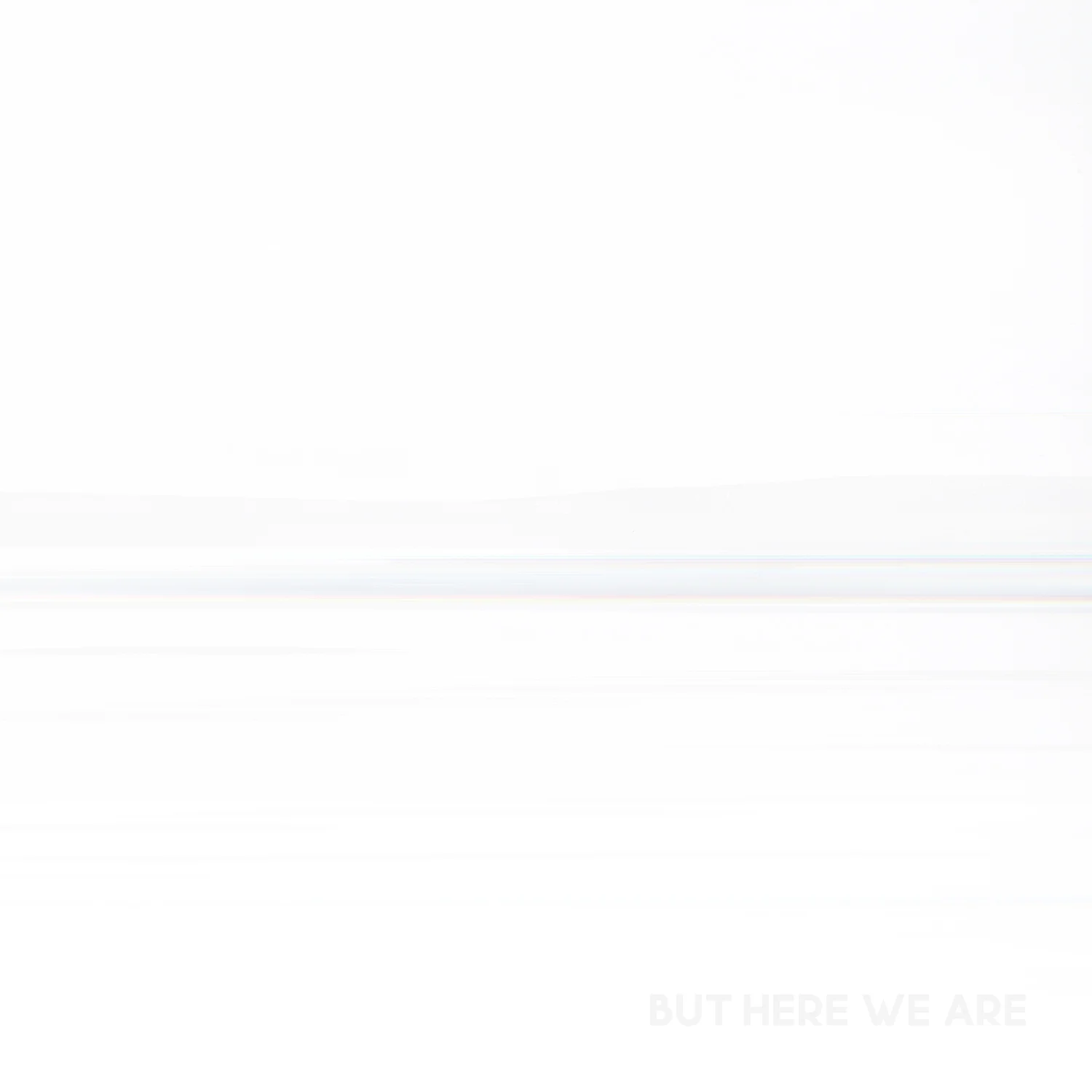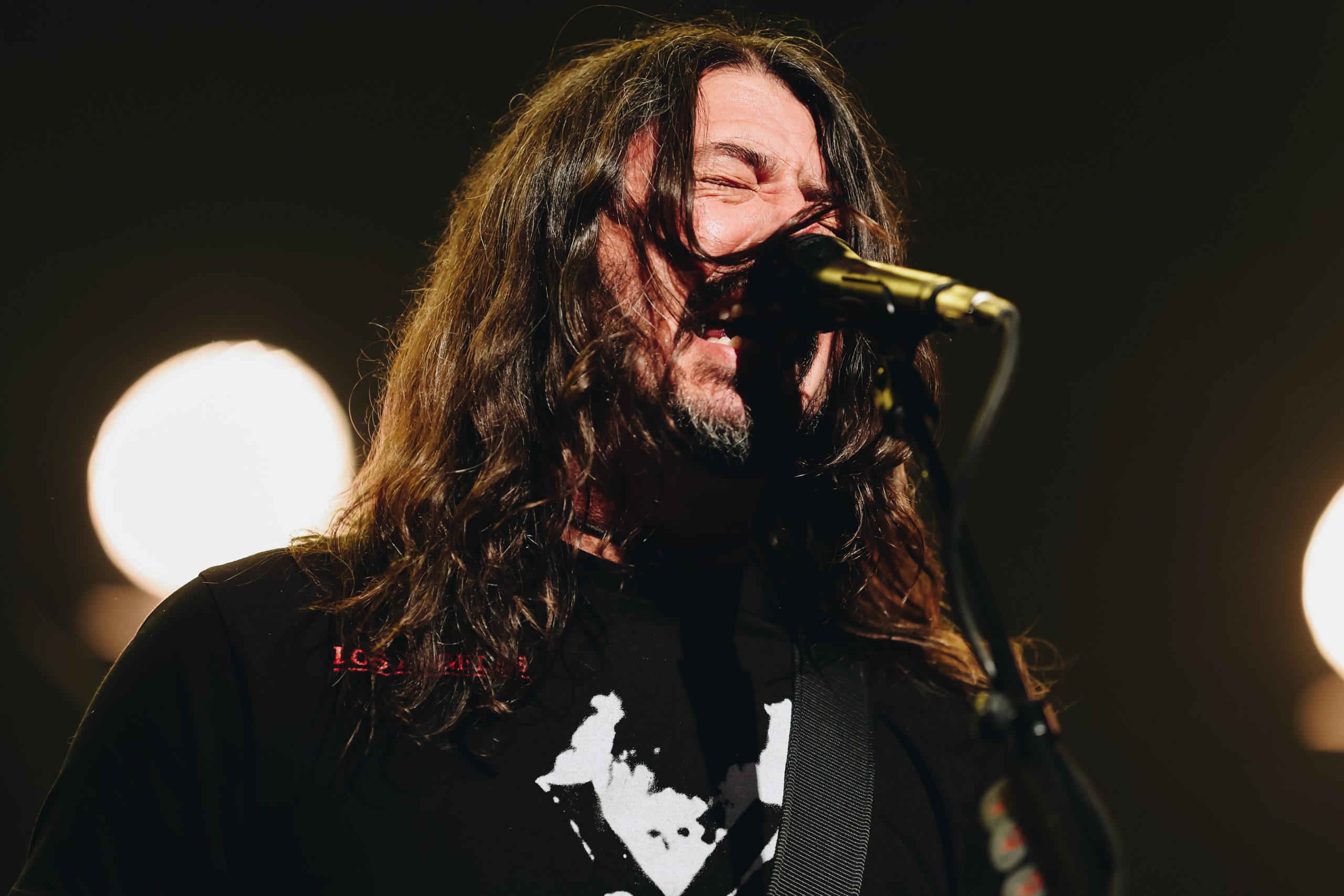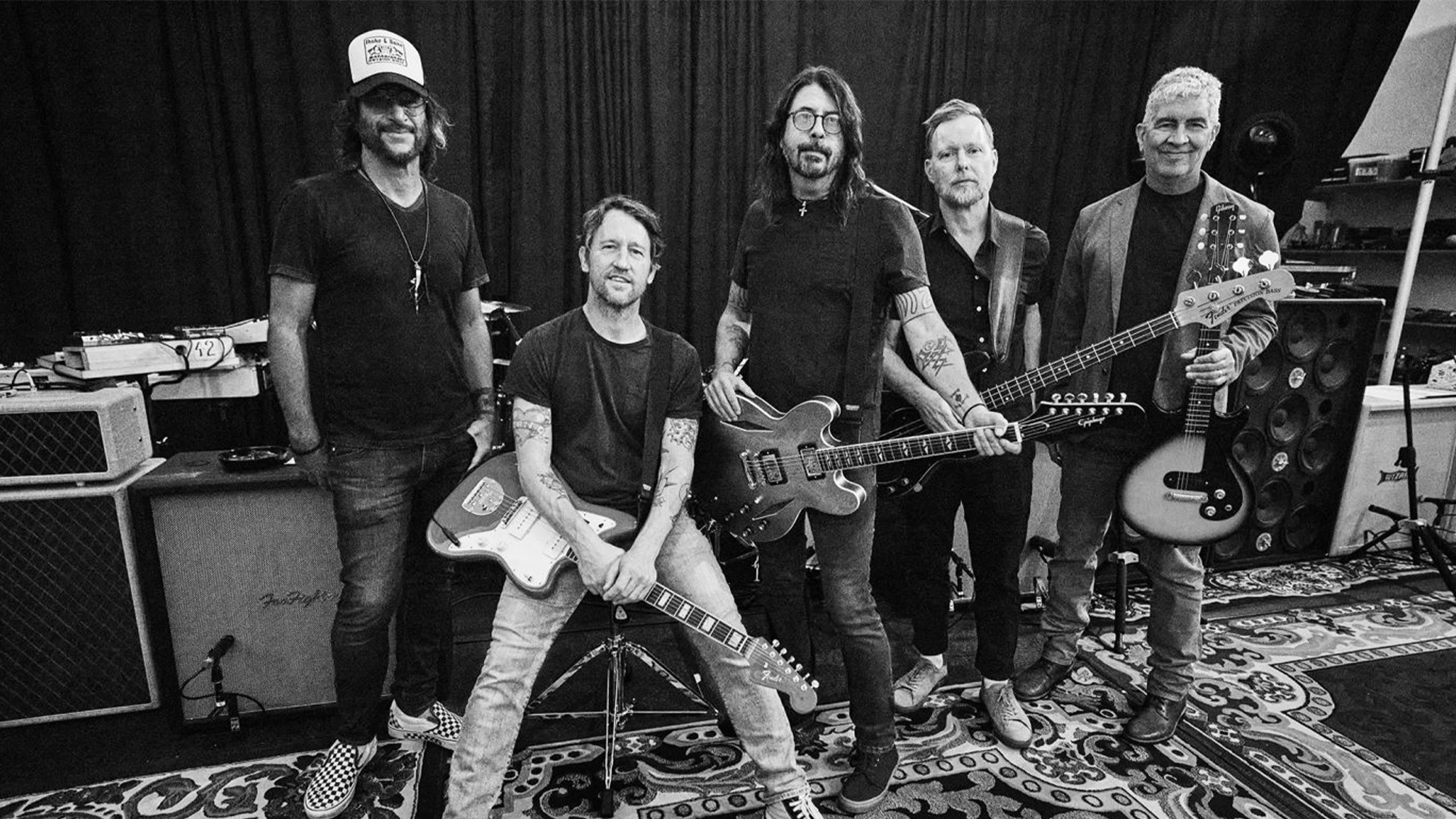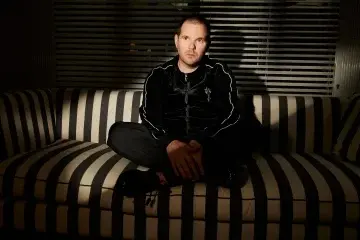★★★★☆
Written and recorded in the wake of the death of Taylor Hawkins and Dave Grohl’s mother, But Here We Are is a heavy Foo Fighters album, both in lyric and sound – lending it a tremendous power.
It’s heartbreaking, but Dave Grohl has been here before. When his bandmate, the Nirvana frontman Kurt Cobain, took his own life in 1994, Grohl looked to music to ameliorate the grief. With songs he’d long held on the backburner, he headed into the studio for what would become Foo Fighters’ debut. As he explains in his memoir The Storyteller, what transpired was more than just a recording session to him: it was a “deeply therapeutic” act that “defibrillated” his heart.
When news arrived that Foo Fighters’ drummer Taylor Hawkins died from a cardiac arrest last March, Grohl was thrown back into bereavement’s disorienting, borderless lands. This was not only his musical soulmate – and another bandmate coming to a premature end – this was his best friend of 25 years too.
Making his first public appearance during Paul McCartney’s triumphant headline Glastonbury in June, it wasn’t hard to spot grief’s indelible marker etched around his eyes. The days had been rough, the nights rougher still. But things would get worse. A few months later, his beloved mother, Virginia Grohl (his ‘sweet Virginia’ as he alluded in Wasting Light’s ‘Arlandria’), passed too.

It’s hard to imagine the pain he must have endured. But Here We Are, the band’s 11th album, goes some way to letting us know. For a start, this is the first Foos album where all the words were written first, and the album is dedicated to Hawkins and Grohl’s mother.
Although Greg Kurstin is in the producer’s chair, the band has returned to the sonic terrain they occupied between ’95 and ’05: the thrilling rawness of their eponymous debut – abetted by Grohl’s return to the drum kit – mixed with the rock-radio sheen found on albums The Colour and the Shape through to In Your Honour.
The set opens with ‘Rescued’. “It came in a flash / It came out of nowhere”, imparts Grohl to an instantly recognisable Foo Fighters’ barnstormer. It’s a bone-rattling calling card that makes clear But Here We Are will be no spare, acoustic lament. The infectious rock-pop surge of ‘Under You’ follows. “Someone said I’ll never see your face again / Part of me just can’t believe it’s true / Pictures of us sharing songs and cigarettes / This is how I’ll always picture you”. These are some of the album’s most specific lyrics, providing a window into a friendship cruelly cut short.
This paves the way for the atmospheric ‘Hearing Voices’ – one of But Here We Are’s best moments. Nate Mendel’s tip-toeing bass provides a supple platform as Grohl directs his struggle into the ether: “I’m hearing voices / But none of them are you”. At its conclusion, the band fades out and Grohl is left alone, acoustic before him, backed by piano. “Speak to me, my love”, he begs mournfully. It’s stunning, and you wish that the song was presented in this format as a companion-piece to this version.

Photo: Rich Fury.
Peculiarly, it is the title track which is the biggest misstep. The syncopated rhythms and monotone vocals are neither provocative nor memorable. It’s the sole flat note on an otherwise stupendous record. Thankfully, ‘The Glass’ makes up for it through pin-sharp melodies and by straddling a delicious line between prime There Is Nothing Left to Lose Foos and a Tom Petty and the Heartbreakers’ guitar workout. Its overarching prettiness belies the sadness of a lyric that lays bare the pitiful reality of loss: “I had a person I loved / And just like that / I was made to live without him”.
The Jekyll and Hyde powerhouse ‘Nothing At All’ is a riot of colour; verses that evoke an experiment to see how ‘My Sharona’ would sound if the tempo was dialled-down, and a chorus that sounds like a train coming off the tracks.
Its wild time signature shift allows Grohl to yowl a defiant, self-penned manifesto (“It’s everything or nothing at all”), and the ante is ratcheted further when he screams “Never mind love and hate / Peace of mind, it’s a bit too late” during an explosive bridge. It’s destined to become a live favourite.
The highlights keep coming. The late-nineties alt-rock shimmer of ‘Show Me How’ is a moving family affair. Featuring Violet Grohl (the album’s only guest musician) harmonising sweetly with her father, the song oscillates between reassurance and uncertainty. “I’ll take care of everything”, he pledges to his daughter and late mother, before late-night doubts peek through: “Where are you now? / Who will show me how?”.
Even though competition is fierce, ‘Beyond Me’ is the best realised lyric-and-music pairing on the whole record. “Everything we love must grow old / Or so I’m told… But, it’s beyond me / Forever young and free”, Grohl reasons, to a track that trades-off between plangent piano and rich waves of distortion. “Who’s at the door now?” asks ‘The Teacher’: a sprawling ten-minute opus centred around an ever-shifting chord progression and a suite of musical gear changes. It’s a track that rewards repeat listens, unravelling its charms more with each visit.
‘Rest’ provides But Here We Are’s solemn conclusion. Reminiscent of Nevermind’s ‘Something in the Way’, it’s a goodbye weighted with teary-eyed resignation rather than clear-headed acceptance. Grohl sounds defeated, broken, and exhausted. But maybe that’s the most honest way he can cap it all off.
After all, But Here We Are is an album for the fallen, written out of suffrage by those still here, reeling from the knowledge that there is no panacea for grief. It’s both a primal scream and a blood-curdling cry into the abyss.
Does this record hit harder knowing the story around it? Of course. And yet, these songs work in isolation and in ignorance of the blankets of grief that envelope them. In the fullness of time, there’s little doubt But Here We Are will be recognised as one of the Foos very best latter-day albums. Heavy of lyric and heavy of form, it’s the most cohesive, inspired, and satisfying collection the group’s penned since Wasting Light.
Against the odds, the Foo Fighters’ have emerged from out under the rubble, and their compass points towards an unlikely future.





